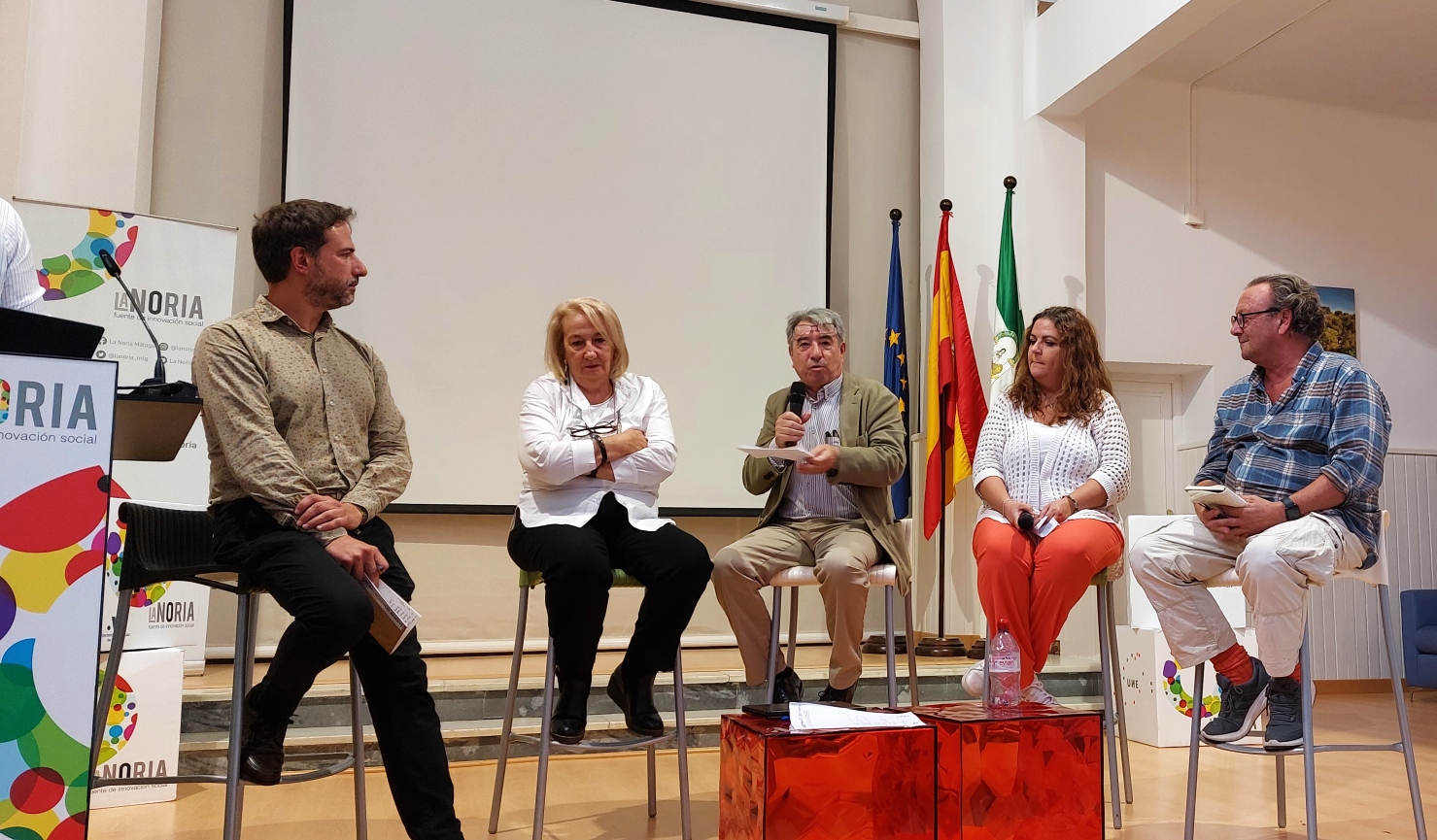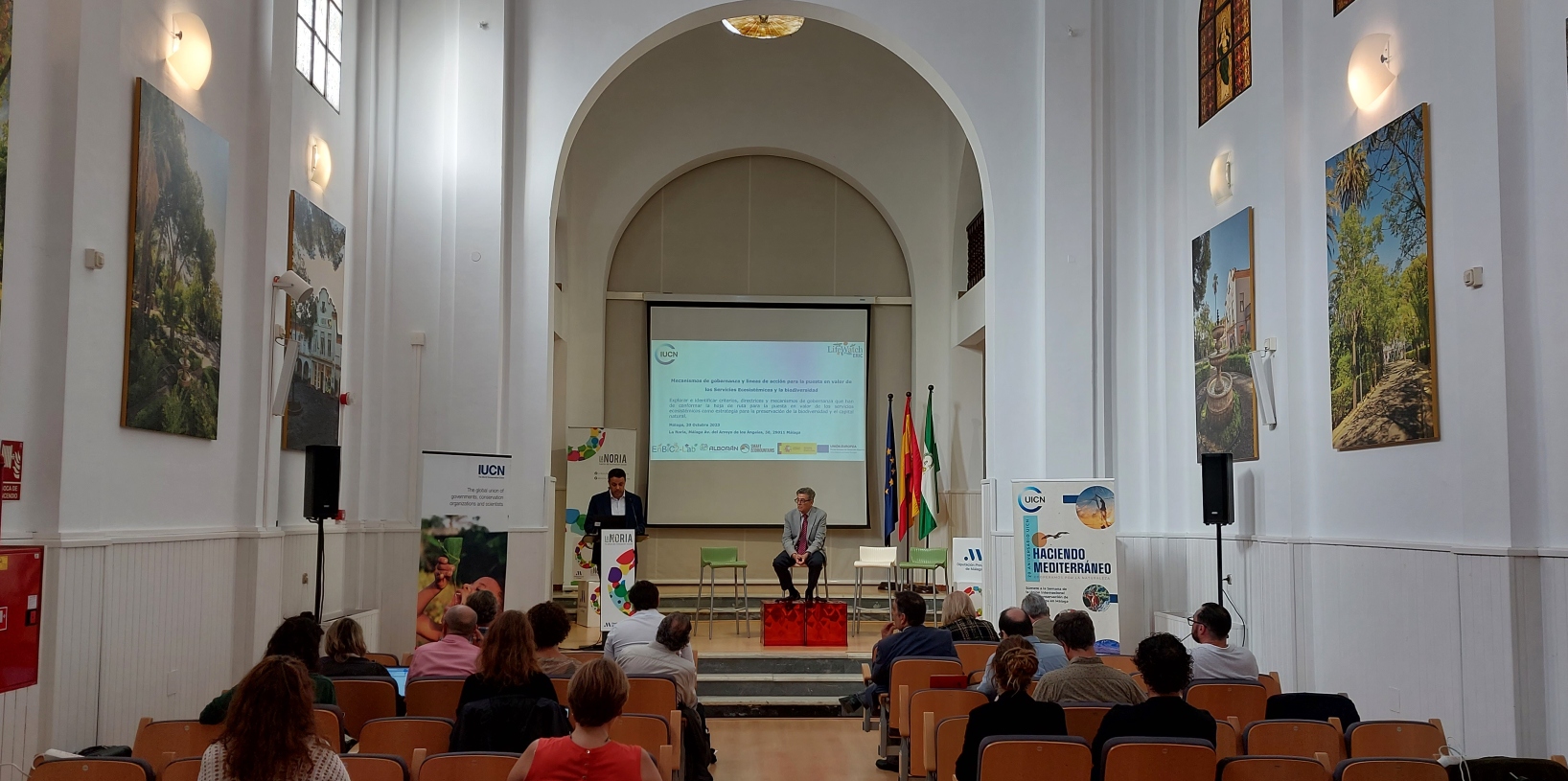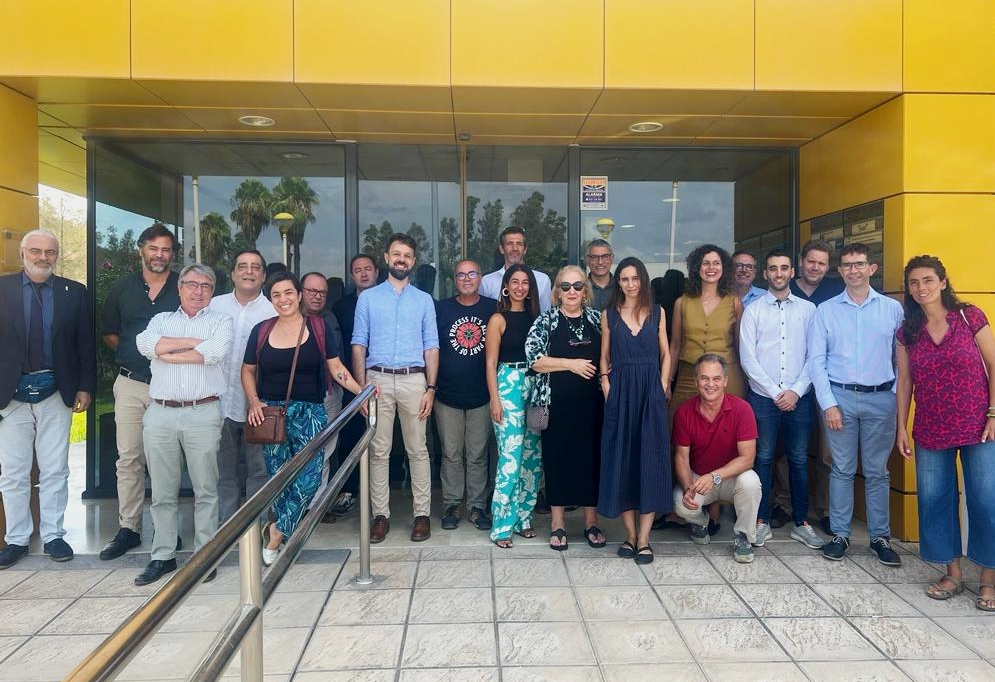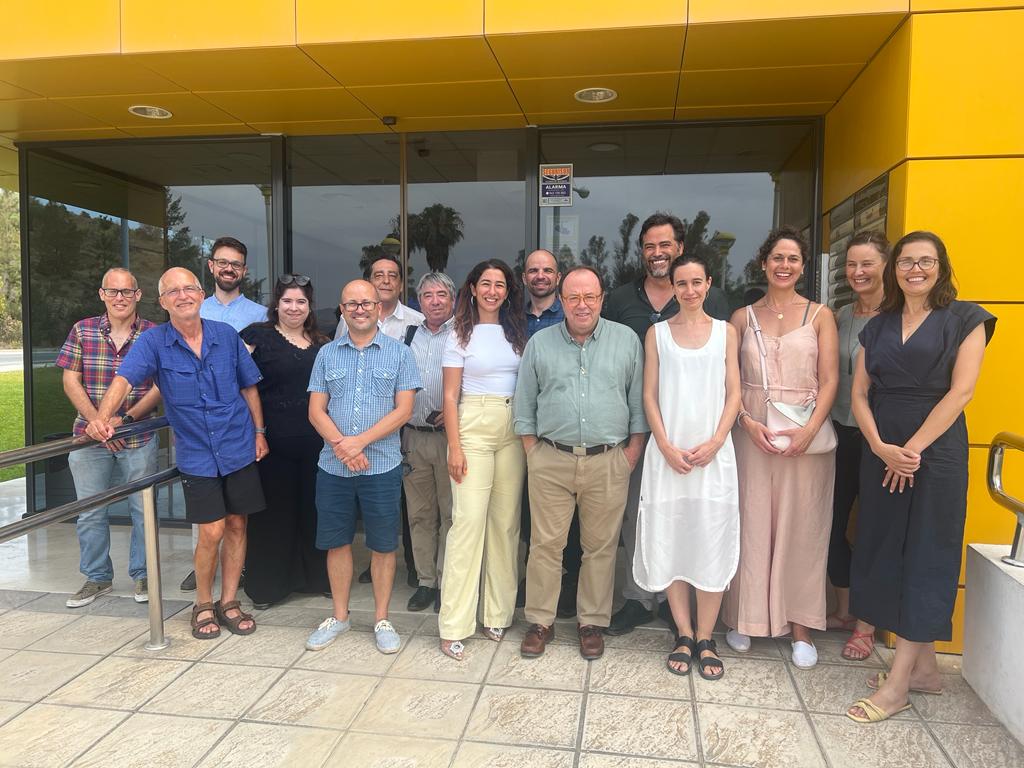Final Insights from LifeWatch ERIC and IUCN Med's Workshop Series
In a dynamic culmination of exploration and collaboration, the third and final workshop on governance mechanisms and lines of action to boost Ecosystem Services and biodiversity unfolded in La Noria, Malaga on October 20, 2023.
This workshop marked the closing chapter of a comprehensive series of interactive peer learning workshops that ran from July to October 2023, promoted by the ALBORÁN, ENBIC2LAB, and SMARTECOMOUNTAINS projects, and coordinated by LifeWatch ERIC and IUCN-Med.
The assembly was led by the Ecosystem Services (ES) Advisory Board, primarily steered by LifeWatch ERIC, and featuring a panel of accomplished experts. This included key figures such as África Zanella, International Policy Lead and Gender Officer at LifeWatch ERIC; Amor Torre-Marín Rando, Bioeconomy Area Head at Fundación Biodiversidad; Amanda del Río, Technical Director at the Global Nature Foundation; a team of Technical Specialists from the Environment and Water Agency of Andalusia (Junta de Andalucía), and Enrique Alonso, Permanent Councillor of the Eighth Section of the Council of State, amongst others. Together the participants explored and identified key governance variables and indicators for improving the integrated management of ecosystem services and biodiversity conservation that contributes to the development of a roadmap.

Workshop Objectives:
- Exploration and Identification: To explore and identify criteria, guidelines and governance mechanisms that will form part of the roadmap for the enhancement of ecosystem services as a strategy for the preservation of biodiversity and natural capital.
- Management and Governance: Integration of management and governance criteria, under the paradigm of ecosystem services.
- Regulations and Procedures: Review of regulations and procedures for the management of terrestrial and marine protected and natural environments (flora and fauna).
- Establishing Environmental Variables: Establish the series of environmental variables, indicators and/or proxies with sufficient capacity to effectively report the following aspects:
- Conservation status of habitats
- Validate and adopt a common understanding between management and planning organizations of the natural environment
- Contribute with variables to the field of research to inform lines of research in the ICT CORE-FEDERTECH e-BRIC Framework and other initiatives
- Integrate variables in a superregional and supranational framework that allows the scalability of the results and their applications
The workshop comprised three significant blocks: Legal and Institutional Frameworks, Gender Strategy and Bioeconomy, and Social Governance Mechanisms.

Key Insights and Conclusions:
- Recognition and Valuation: Preserving ecosystems and biodiversity necessitates recognizing and valuing the services they provide to society and the economy. Environmental accounting, particularly through standardised systems such as the United Nations Environmental Economic Accounting, is vital for achieving this objective.
- Limited Criteria in Market Systems: Greater influence and integration of more natural capital management criteria into market systems is essential to incentivize the reversal of environmental degradation processes.
- Additional Factors in Ecosystem Valuation: Strategies for valuing ecosystem services must consider factors such as Carrying Capacity, Resilience, and Maximum Sustainable Yield as compulsory requirements of the overall management model and frameworks.
- Changes in Current Governance: Effective governance is the pivotal link connecting the entire chain (identification, measurement, valuation) with the functioning of the market. Governance plays a decisive role in generating incentives for positive change. To close the circle we need to generate new market mechanisms and proxies that demonstrate the benefits of ES.
- Legal Process Modifications: There's a need for significant legal process modifications in Spain to align with current environmental systems.
- Citizen Participation and Transparency: Citizen participation, adherence to international standards, and transparency in information, particularly in governance matters, are essential.
- Lacking Comprehensive Regulatory Frameworks: Despite numerous examples of regulatory efforts, the presentation highlighted that concrete regulatory frameworks are still lacking in certain critical areas. An overall call for Comprehensive Governance and room for improvement at EU level where the absence of governance frameworks for ecosystem services is a major issue.
The objective of LifeWatch ERIC was to create a set of tools that will assist scientists, practitioners, policymakers, and governments to effectively account for "Biodiversity and Ecosystem Services" (BES) within economic frameworks. This will inform the formulation of economic policies, market-based mechanisms, fiscal incentives, regulatory frameworks, and more.


